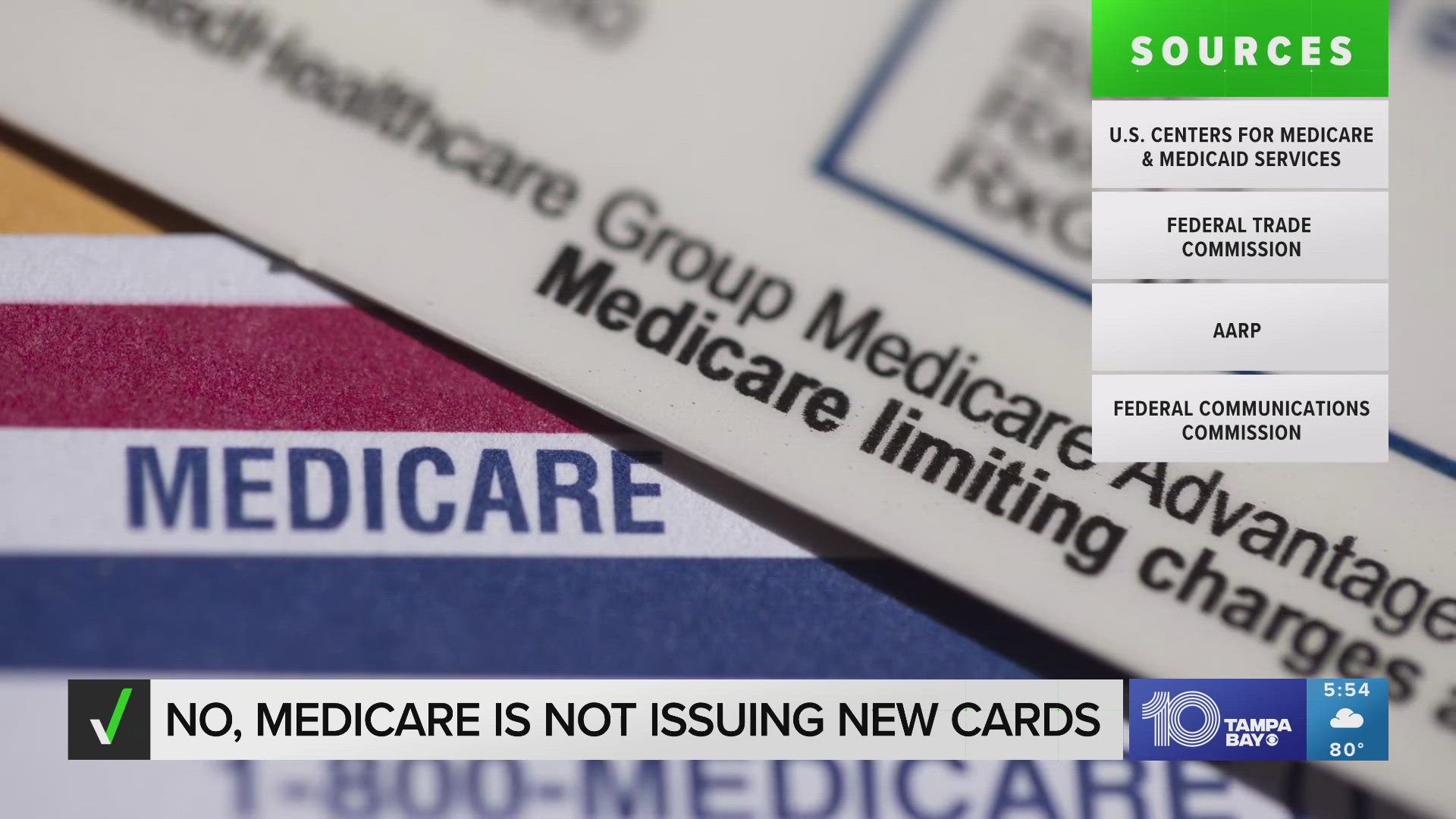ST. PETERSBURG, Fla. — Nearly five million Floridians are enrolled in Medicare, which is the federal health insurance program that pays for covered health care services for most people who are age 65 and older and for certain younger people with disabilities.
Florida has the second highest number of beneficiaries, behind California.
VERIFY viewer Susan B. in Lakeland asked us to confirm if Medicare is calling people about issuing replacement Medicare cards.
“I received a phone call from someone who was asking if I had received my new Medicare card,” she told VERIFY. “They asked a lot of questions and I was suspicious this might be a scam.”
THE QUESTION
Is Medicare sending out new Medicare cards?
THE SOURCES
THE ANSWER
No, Medicare is not sending out new cards. Phone calls about changes are a scam.
WHAT WE FOUND
Medicare will never contact anyone for their Medicare number or other personal information unless you’ve given them permission in advance, a Centers for Medicare and Medicaid Services (CMS) spokesperson told VERIFY in an email.
Senior Medicare Patrol, a federally funded group dedicated to raising awareness of Medicare and Medicaid fraud and abuse, said if anyone calls claiming the following, it’s a scam:
- You are getting a new, plastic Medicare card
- Medicare is switching to a card with a chip in it
- It’s a new year so you need a new card
- You need a black and white card
- They need your Medicare number to see if you have received your new one yet
- They need you to verify your Medicare number so they can confirm you have the correct card
CMS says on its website that Medicare, or someone representing Medicare, will only call and ask for personal information in these two situations:
- A Medicare health or drug plan may call you if you’re already a member of the plan. The agent who helped you join can also call you.
- A customer service representative from 1-800-MEDICARE can call you if you’ve called and left a message or a representative said that someone would call you back.
If you are not expecting a call or are unsure if Medicare is really trying to contact you, you should hang up and call 1-800-MEDICARE.
The Federal Trade Commission (FTC) and AARP also say if someone calls you claiming to be from Medicare, and asks for your social security number or your bank information to get your new card or new benefits, that is a scam, and you should hang up immediately.
In 2018, Medicare decided to stop using social security numbers as account numbers to help keep its members' information more secure and to protect their identity. In April of that year, it began mailing new Medicare cards with unique 11-digit account numbers. The Federal Communications Commission (FCC) said that the transition to the new cards was scheduled to be completed by December 2019.
During that time, the FCC started receiving complaints about scammers calling people pretending to be Medicare representatives. The FCC said the scammers often used caller ID spoofing to mask their identity. (Spoofing is when a caller deliberately falsifies the information transmitted to your caller ID display to disguise their identity.)
If you receive a call requesting your Medicare number, you should contact the U.S. Health and Human Services fraud line at 1-800-HHS-Tips (1-800-447-8477). You can also contact Medicare at 1-800-MEDICARE (1-800-633-4227), report the call to the FTC at ftc.gov/complaint, or file a complaint with the FCC online.
VERIFY's Erin Jones contributed to this report.

